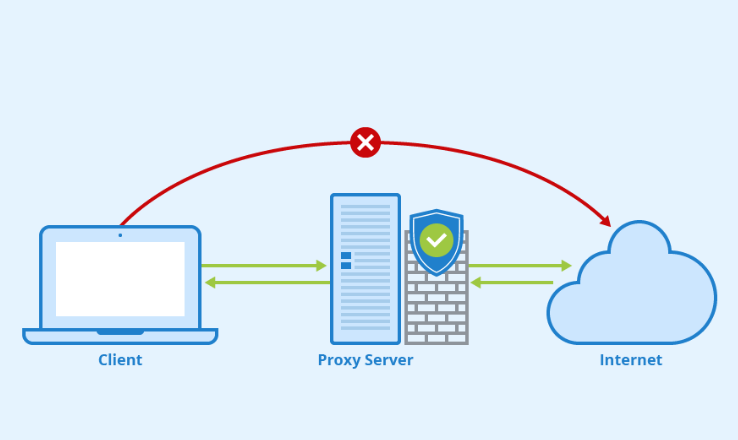Within the complex landscape of network security, the concept of proxy services in firewalls emerges as a critical component. A proxy service essentially acts as an intermediary between a private network and the larger internet, ensuring safety and anonymity for users. Among various types of proxy services, residential proxies represent a category that is particularly noteworthy due to its unique ability to mask the user's genuine IP address with an alternative residential IP.
So, what makes a proxy service indispensable within a firewall's framework? The answer lies in its capability to provide an additional layer of security and privacy. When a user sends a request to access a website or another resource available on the internet, the request is processed through the proxy server. Here, the request's origin is anonymized, usually by allocating a different IP address to the outgoing traffic. This process is precisely where residential proxies create a distinction.
Residential proxies are recognized for sourcing IP addresses from real internet service providers (ISPs). Unlike other types of proxies, they do not supply users with random IP addresses, which can often be identified and potentially blocked by meticulous web servers. Instead, they offer genuine residential IPs that are less likely to be recognized and are often considered more trustworthy by external servers.

Integrating residential proxies into firewall systems amplifies a network's security protocols. First, they aid in maintaining user anonymity, an essential aspect for businesses managing sensitive data or individuals trying to access geo-restricted content. Furthermore, they contribute to enhanced security measures, as the firewall can better monitor, filter, or block the traffic passing through the proxy. This setup prevents malicious entities from accessing the network, as the firewall intercepts any suspicious data packets.
Moreover, residential proxies within a firewall service also assist in load balancing, a technique used for distributing network traffic evenly across several servers. In doing so, they ensure the network's consistent performance and availability, preventing individual server failures from affecting the system's overall functionality.
However, despite the numerous advantages, it is vital to consider certain challenges associated with the use of residential proxies. The legality and ethical implications of using someone else's IP address, potential slowdowns in internet speed due to the rerouting process, and the reliability of the residential proxy providers are all factors requiring careful evaluation.
Understanding the role of proxy services, especially residential proxies, in firewalls is crucial for anyone concerned with network security and anonymity. These services do not merely facilitate anonymous communication; they also enhance the overall security measures employed by network administrators. As cyber threats continue to evolve, so must the defenses, and residential proxies represent a dynamic and robust solution within the multifaceted world of cybersecurity.